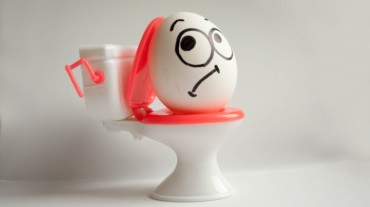Chat with ![]()

Chat with ![]()




Old age comes with its set of health issues. From weaker bones, breathing issues and joint pains to mental health concerns, digestive problems and bladder issues – there’s a lot that older people go through. On International Day of The Elderly, let’s talk about an aspect that is less spoken about: bladder health. The United Nations has declared 2021 to 2030 as the decade of healthy ageing. So, let us know some tips to keep bladder healthy, and improve the quality of life for older people.
Dr Mohan Balaiah Aswathaiya, Consultant, Urology and Kidney Transplant Surgeon, Fortis Hospital, Cunningham Road, Bengaluru, tells Health Shots about different aspects of bladder health.
* Urinary incontinence (involuntary leakage of urine)
* Nocturia (nighttime frequent urination)
* Overactive bladder
* Repeated urine infections
“Bladder problems might be related to changes due to ageing, secondary to obstruction (prostate enlargement in men), the effect of diabetes mellitus, neurological diseases such as Parkinson’s disease and others,” says Dr Aswathaiya.

* Frequent urination during night affecting sleep
* Inability to control the urge to urine
* Urine leakage on coughing or straining
* Blood in urine
* Pain or burning during urination
* Straining or difficulty in urination
* Abdominal pain before, during or after urination
This may include lifestyle modifications, medications, surgery, or a combination of these treatments.
To know the common lifestyle and behavioral modifications that can improve bladder health and minimize the problems, read on!
You should aim for 6 to 8 glasses of fluid intake per day. This may including water and other beverages. Restrict fluid intake after 7 p.m. if you have frequent urination during the night. Fluid restriction is strictly advised in people with heart failure or kidney disease.

Excessive intake of certain beverages such as coffee, tea, carbonated drinks and alcohol can irritate the bladder lining and worsen bladder problems. You don’t need to stop your favourite beverage, but simply cutting down the amount might help.

Overweight individuals are at an increased risk of stress urine incontinence. Weight reduction improves bladder control and reduces the incontinence episodes.
Smoking causes bladder cancer and also causes bladder control problems. Heavy smoking also causes chronic cough which might aggravate urine incontinence.
Straining during bowel movement or passing hard stools can affect the pelvic floor muscles and also affect bladder function. Reduce constipation with high-fibre diet, adequate fluid intake and regular exercise.

If you’re worried about how to keep bladder healthy, know that holding urine in the bladder for too long is a bad idea. It can increase the chances of infection and in the long term can affect bladder function. Hence, it is advisable to empty the bladder once every 3 to 4 hours.
Bacteria can be transferred to the urethral opening during sexual intercourse from the gut or vaginal cavity. Make sure to pee soon after sex to reduce the likelihood of an infection.
Squeeze your pelvic floor muscles – as if you are trying to stop your stream of urine or bowel movement – for three seconds. Relax after a count of three. These exercises can be repeated multiple times in a day. These exercises can be done in lying down, sitting or standing position. Consult your doctor, nurse or physical therapist to make sure you are doing them correctly.

This is especially useful if you are suffering from overactive bladder symptoms. You set a scheduled time to urinate even if you don’t have the urge, slowly increasing the time gap between two voids till you reach an interval of 3-4 hours.
Some of the drugs that can have an impact on bladder problems include diuretics, antihistamines, sedatives and antidepressants. In case you are having urinary symptoms, please talk to your physician to change the drugs, reduce the dose or change the timing of the dose.
Get Latest Updates on Intimate Health, Feminine Hygiene, Menstruation, Sexual Health